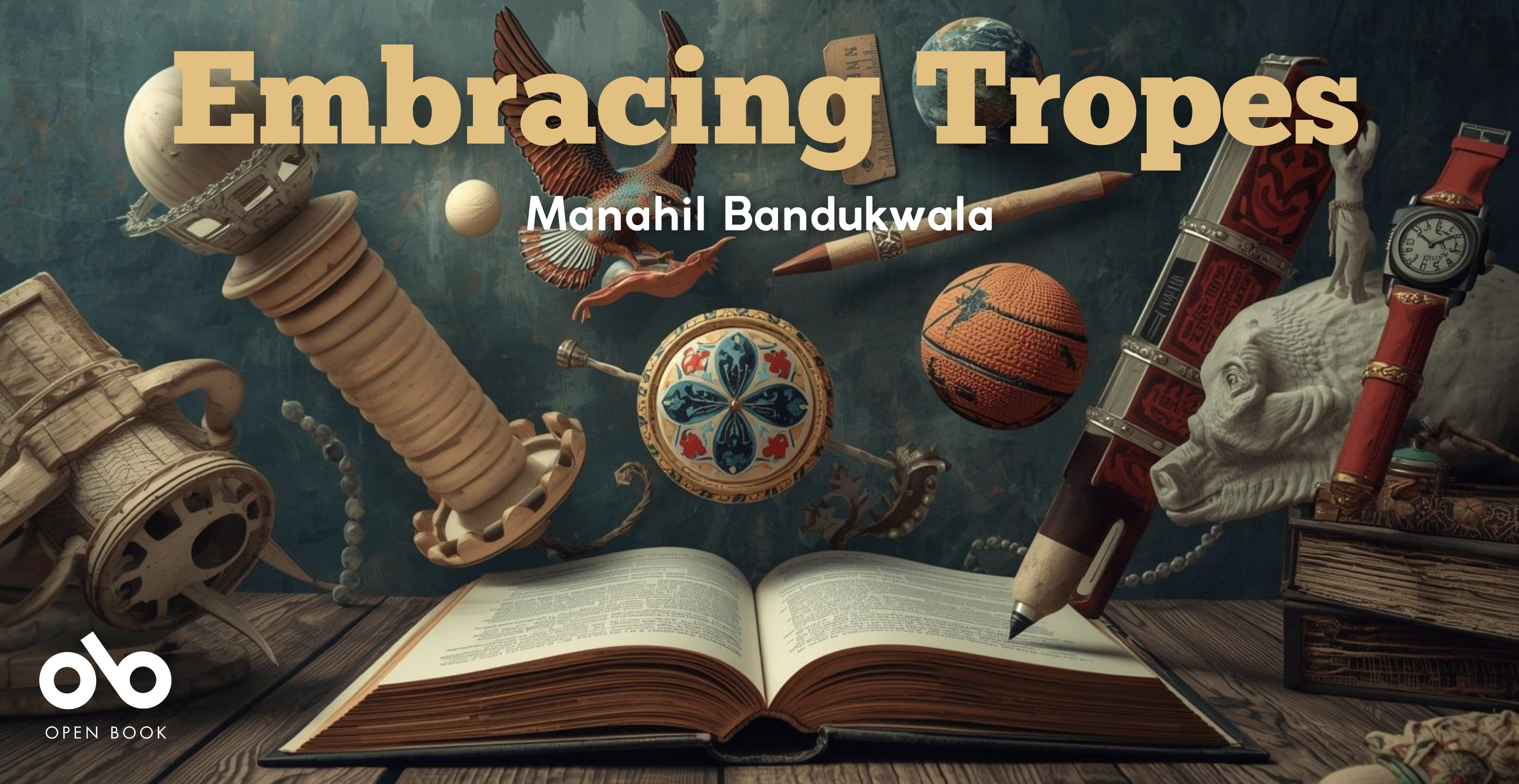Embracing Tropes
By Manahil Bandukwala
A lot of my summer reading list involved beachy romance novels like Leanne Toshiko Simpson’s Never Been Better and Carley Fortune’s Every Summer After, and, like many twenty-something women, (re)reading and watching The Summer I Turned Pretty.
I loved and revelled in so many narrative elements, like tense scenes of almost-touches, and the final moment where the main characters finally get together. I wasn’t surprised at how the books ended, and if they had ended any differently, I would definitely have felt like all the build-up was wasted.
Even though looking up a piece of media’s TV Tropes page is one of my favourite things to do, it’s difficult to shake the feeling that writing must be original and never-seen-before for a narrative to be worthwhile. When an idea is coming out of my own imagination, it doesn’t feel as original because I know the ins and outs of the story in depth. The times I feel like an idea is original, books with that plotline seem to be everywhere.
I’ve sabotaged my own writing in trying to avoid the tropey or cliché ending. I wrote a whole book of love poems, and still fall into this trap! The first draft of a love story ended in heartbreak because I felt I had to surprise the reader with a twist ending. (And, for some reason, happy romance endings are the most tropey and cliché of all). Luckily, I had a peer reader tell me that I was failing the reader by not delivering on the story’s set-up.
Part of the desire for originality and anti-tropeness comes from a grant and manuscript pitch world, where a book’s originality is a selling factor. With grants in particular, there is always the question: why fund an idea that’s been done so many times before. Given this, it’s been interesting to see publishing houses use time-honoured tropes as marketing strategies. From independent publishers to the big five, I’ve seen more than one book labelled “enemies to lovers.”
Your CanLit News
Subscribe to Open Book’s newsletter to get local book events, literary content, writing tips, and more in your inbox
Reading as a reader rather than as a writer has helped me challenge the above mindset. I try to step out of analyzing books as a form of writerly study and just read them for enjoyment. Rom-coms seem to be the best genre for that challenge, because the endings of romance novels are and should be expected. The Summer I Turned Pretty is full of tropes (and, if the narrative and endgame changed, it would be full of a different set of tropes).
It’s not to say these books aren’t without surprise and fresh plot elements—Simpson’s novel tackles mental health—but writers and readers know where the story is going to end up. It’s about reaching the end in a way that feels true to the characters we’ve gotten to know. Since I allowed myself to embrace this mindset shift, it’s been the books and stories that have sudden out-of-character twists that take me out of a narrative.
What better feeling is there than to finish a book you love, to need more of that type of narrative, and to then find a whole pile of books in that style?
The views expressed by Open Book columnists are those held by the authors and do not necessarily reflect the views of Open Book.
Manahil Bandukwala is a multidisciplinary artist and writer. She is the author of Women Wide Awake (Mawenzi House, 2023) and Monument (Brick Books, 2022; shortlisted for the Gerald Lampert Memorial Award), and numerous chapbooks. In 2023, she was selected as a Writer's Trust Rising Star. See her work at manahilbandukwala.com.




